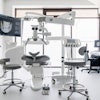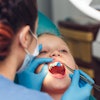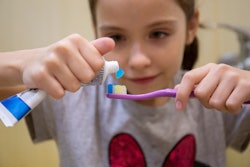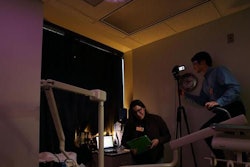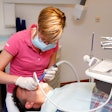
Children with autism experience fewer caries and decayed, missing, and filled teeth than their neurotypical peers, according to the findings of a new study. However, these children are prone to other oral health issues, including bruxism, dental anxiety, and soft-tissue trauma.
Autism is a developmental disorder marked by communication difficulties and other behaviors that can make dental care difficult. The study researchers surveyed hundreds of children and their parents to identify how autism might affect oral health. They published their findings in the European Journal of Paediatric Dentistry (September 2019, Vol. 20:3, pp. 237-241).
"One of the main findings of the study was observed in relation to caries prevalence in that autistics had lower caries prevalence values than controls," wrote the authors, led by Berna Kuter, DDS, PhD, an assistant professor of pediatric dentistry at İzmir Democracy University in Turkey. "Another main finding was that no statistically significant differences were found in terms of plaque index values when the groups were compared."
Autism and oral health
Autism spectrum disorder affects 1 in 59 U.S. children, according to the U.S. Centers for Disease Control and Prevention. The disorder is associated with a number of medical issues, but previous research on dental considerations for children with autism is somewhat limited and inconclusive. Therefore, the researchers decided to investigate.
They enrolled 407 children, including 285 children with autism and 122 neurotypical children, in their study. The children and their parents answered survey questions related to oral hygiene, and a dentist evaluated the children's dental health, including taking plaque index, caries prevalence, and decayed, missing, and filled primary teeth (dmft) and permanent teeth (DMFT) scores.
Children with autism had significantly lower DMFT, dmft, and caries prevalence scores than their peers, the researchers found. These patients also had similar plaque indicators to neurotypical children.
This result occurred despite children with autism practicing suboptimal dental hygiene behaviors. Only 38% of children with autism brushed their teeth daily, compared with 85% of their peers. Parents were also more likely to help children with autism brush their teeth than parents of neurotypical children.
"Autistic children need help to brush their teeth because of the deficiencies in their manual skills," the authors noted.
Children with autism were also significantly more likely to experience bruxism, dental anxiety, tongue thrusting, and drooling. In addition, they had more dental trauma and soft-tissue trauma, likely from self-injurious behaviors.
"Self-injurious behavior prevalence of the autistics ranged from 4.9% to 60% in several studies in the literature, and this value was found as 35.8% in this study," the authors wrote. "These self-injurious behaviors could affect parts of the body, especially the neck and head region and teeth."
One of the largest studies
This was one of the largest studies to look at the oral health behaviors and status of children with autism, the authors noted. Previous research on the topic has produced mixed results, and the researchers hope their contribution positively adds to the scientific literature.
"The aim of the present study was to comparatively evaluate the oral health status and influential factors, brushing, developmental and orthodontic disorders, bruxism, drug intake, sweet eating habits, sociodemographic factors, and lifestyles of autistic and healthy children," they wrote. "Participants in this study were greater in number compared to the previous studies investigating the same phenomenon. Furthermore, it was a more comprehensive study than other studies in the literature in terms of number of variables included."
